Bibliometric Study
Bibliometric Study of Helmholtz Institute Ulm
A bibliometric study analysing the publications of HIU and their reception by the scientific community was conducted with the aim to assess the scientific output of HIU and to compare it to other, similar institutes or universities also active in the field of battery research. The study is based on publications from 2013 until 2018, considering all citations up to 2019. The study was conducted by the Deutsche Zentrum für Hochschul- und Wissenschaftsforschung (DZHW), Berlin, in May 2020.
A set of keywords was used to define an initial data set with 525,604 publications that are reporting on topics related to electrochemical energy storage. Publications cited by at least two publications of the initial data set resulted in a data set with 2,025,450 entries. A consistency check and an iterative process to minimize the exclusion of relevant publications and to maximize the exclusion of irrelevant publications gave a final data set with 92,914 publications in 4,076 journals and proceedings.
In order to compare HIU scientific output, five institutions with similar research field were selected. The Münster Electrochemical Energy Technology (MEET) at the University of Münster performs research exclusively in the field of battery-research as the HIU. On the level of universities, the University of Warwick and the Seoul National University are engaging in the field of battery research. This comprises all departments, schools and institutes. Publications of the Argonne National Laboratory, a multidisciplinary science and engineering research centre, were considered if they had an affiliation pointing to battery research. Similarly, only publications of the Chinese Academy of Science with affiliation “Institute of Physics” were taken into account.
Accumulated Scientific Output 2013 – 2018
Only HIU and MEET are devoted exclusively to electrochemical energy storage.
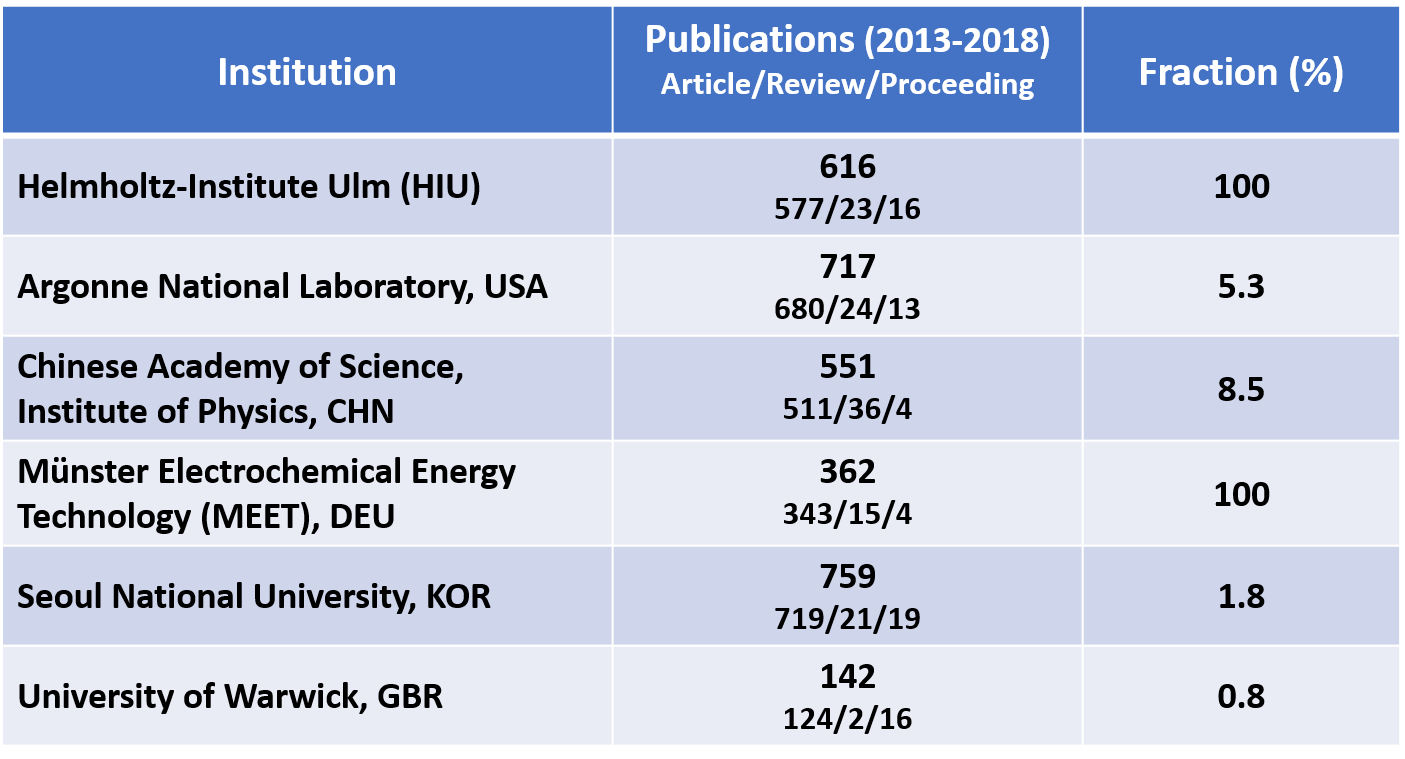
Tab. 1: Overview of the scientific output of institutions comparable to HIU in size or research activities. Only at HIU and MEET, research is exclusively focussed on electrochemical energy storage. The total number of publications comprises regular as well as review articles and contributions to proceedings.
Accumulated Scientific Output 2013 – 2018
HIU is, in terms of absolute number of publications, ranked third place, behind the Seoul National University and the Argonne National Laboratory.
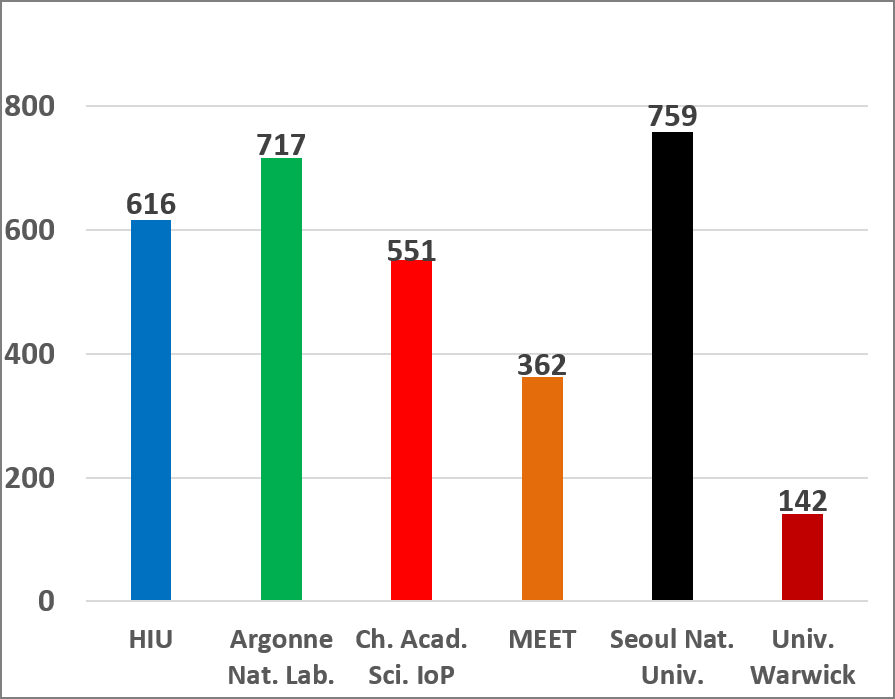
Fig. 1: Overview of the scientific output of institutions comparable to HIU in size or research activities in the period 2013 – 2018. The total number of publications comprises regular as well as review articles and contributions to proceedings.
Contribution to Publications in the field of Electrochemical Energy Storage (2013 – 2018)
HIU is, also in terms of its relative contribution to the overall number of publications, ranked third place, behind the Seoul National University and the Argonne National Laboratory.
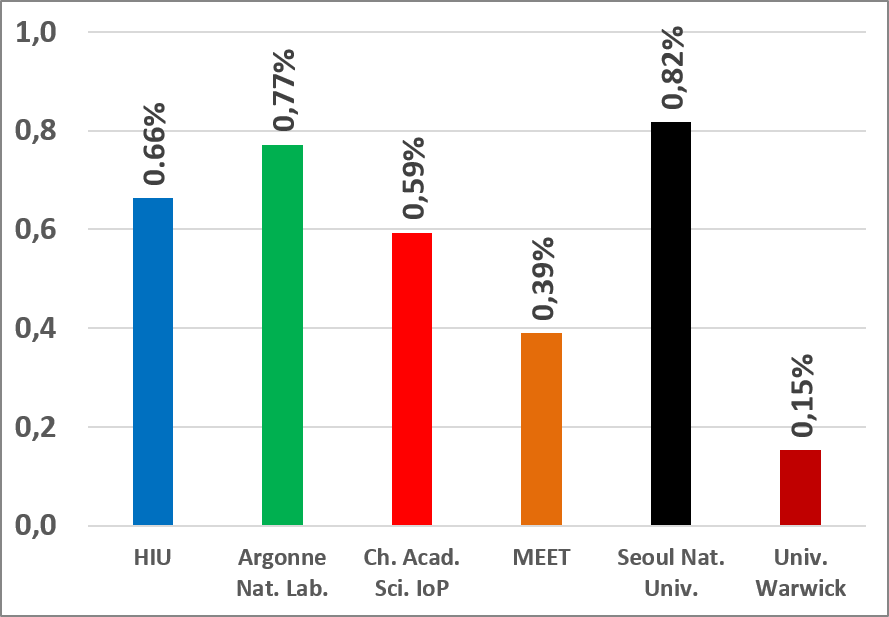
Fig.2: Contribution (%) of each institution to the overall number of publications in the field of electrochemical energy storage. The underlying data set contained 92,914 publications in 4,076 journals and proceedings.
Absolute Citation Numbers of Publications (2013 – 2018)
Publications of HIU are cited as often as those from MEET, but considerably less than those of the Argonne National Laboratory, Chinese Academy of Science or the Seoul National University.
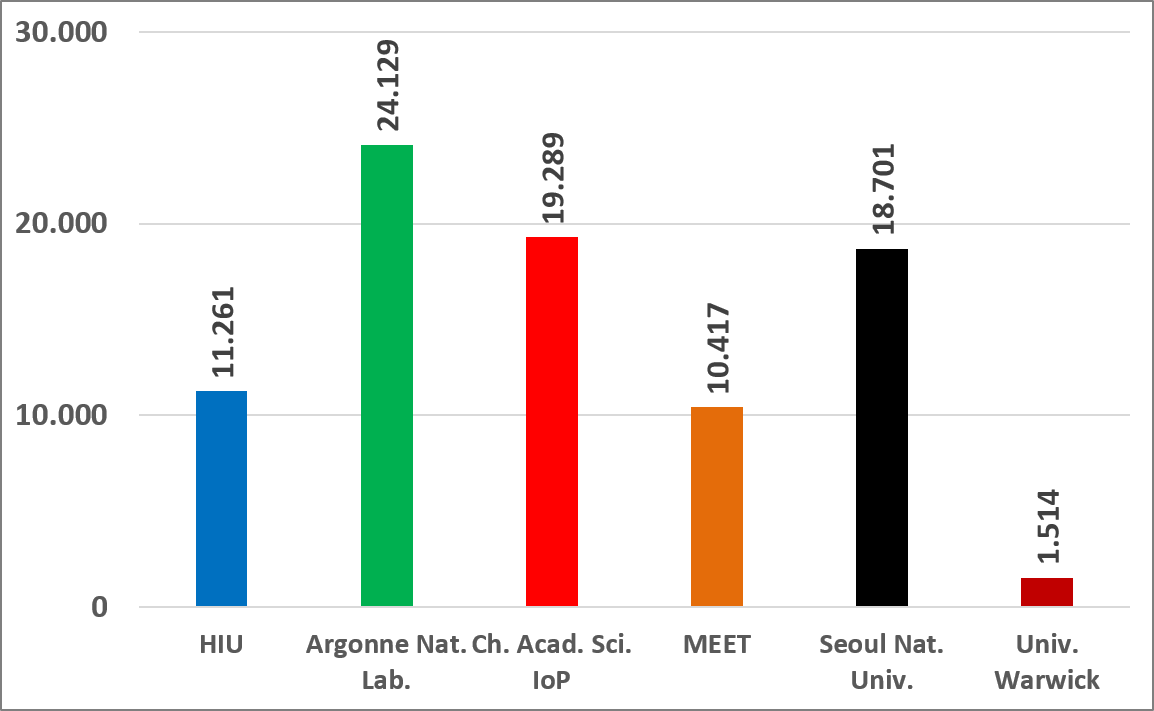
Fig.3: Number of total citations of each institution in the period 2013 – 2018.
Normalized Average Citation Rate (2013 – 2018)
The normalized average-citation-rate indicates how well publications were perceived by the community.
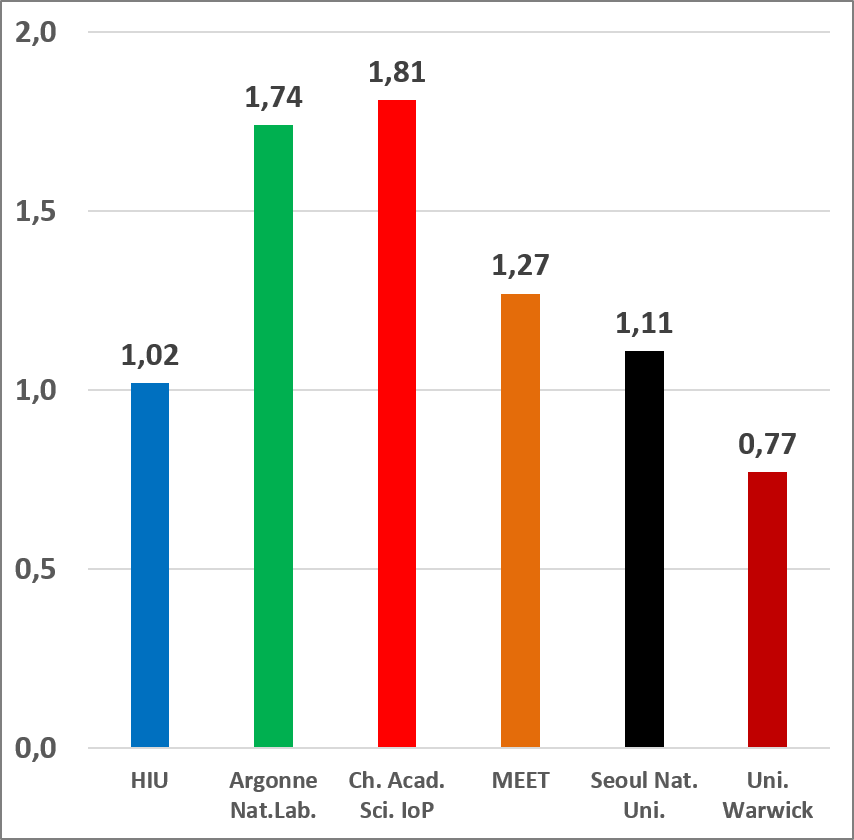
Fig.4: Normalized average-citation-rate of each institution in the period 2013 – 2018. It is based on the ratio of the number of citations of a publication and the average number of citations of all publications published in the same year. Per definition, the normalized average-citation-rate of the battery-research field is 1.0. Thus, this citation-impact measure puts the citation rate of an institution in context to the entire research field. A value of 1.25 or 0.75 indicates a 25% higher or lower citation of a publication than the average, respectively.
Highly Cited Publications (2013 – 2018)
Considering the percentage of highly-cited publications, HIU is performing slightly better then the entire research field.
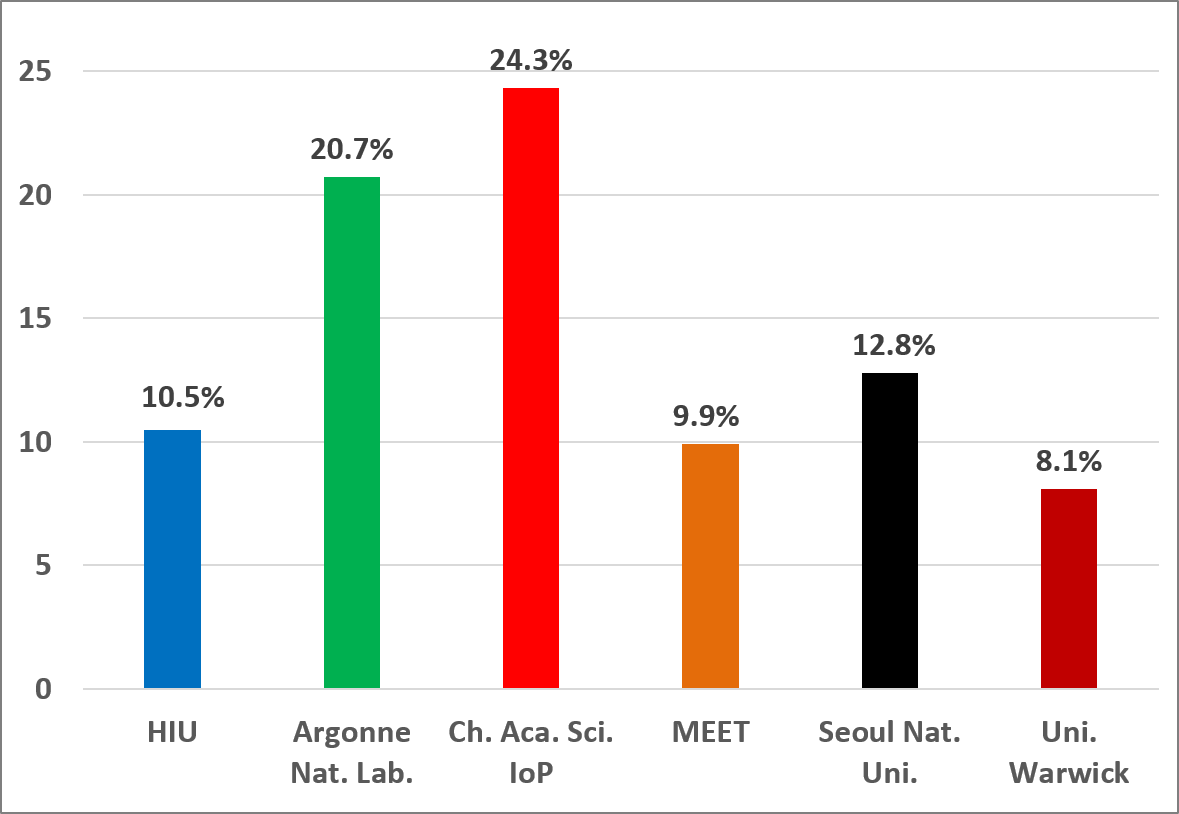
Fig.5: Percentage of highly-cited articles of each institution in the period 2013 – 2016. Highly cited articles are those articles that are included in the set of the 10% most-cited articles. Per definition the expectation value is 10%.
Contact
Dr. Heribert Wilhelm
Managing Director
Helmholtz Institute Ulm
Tel: +49 (0731) 50 34000
Fax: +49 (0731) 50 34009
Email: heribert.wilhelm@kit.edu